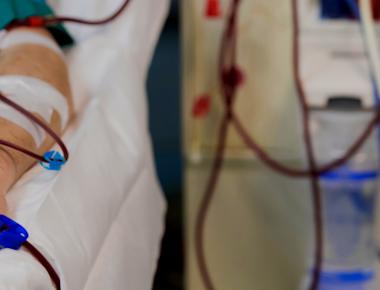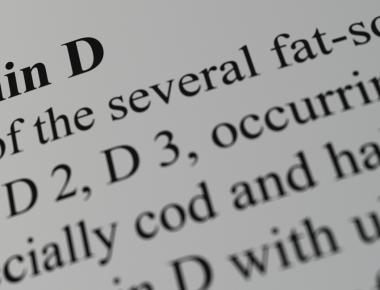
How Type 2 Diabetes Patients Improved Their Glycemic Response with Magnesium
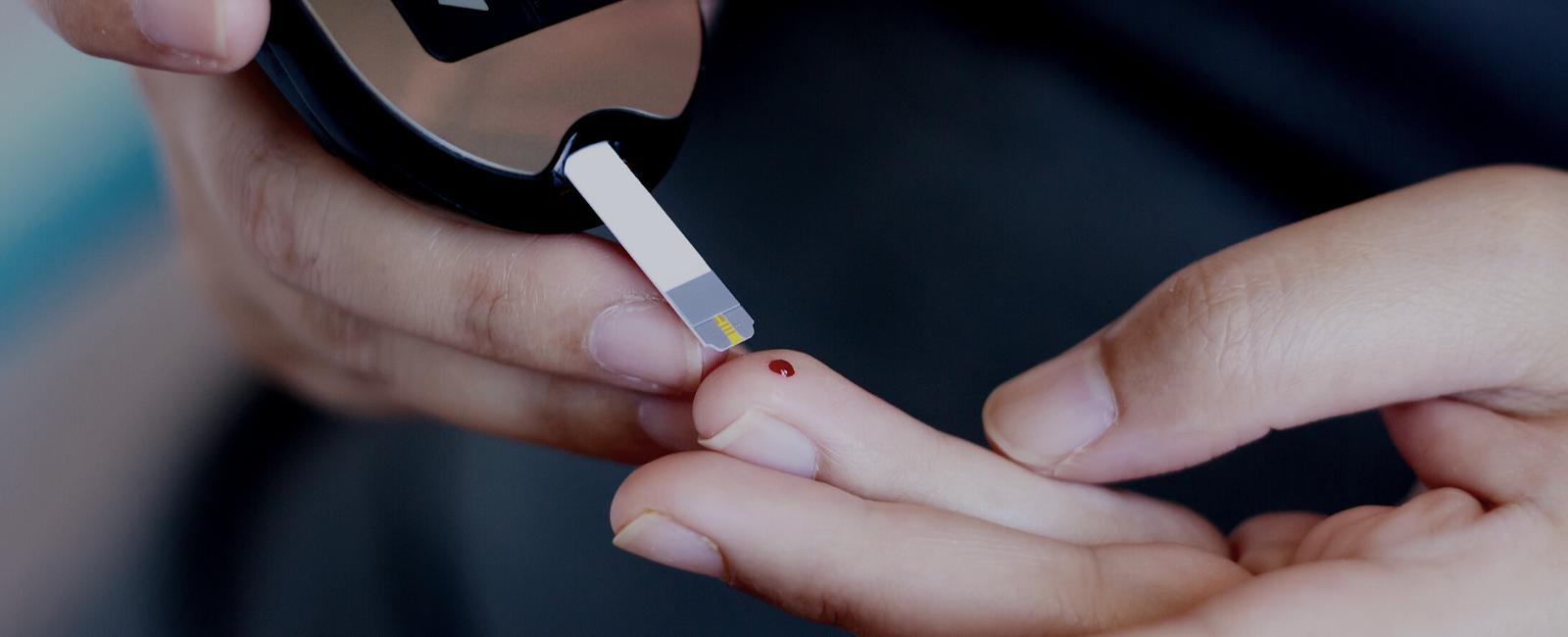
Table Of Contents
The Effects of Oral Magnesium Supplementation on Glycemic Response among Patients with Type 2 Diabetes
Diabetes is a chronic disease in which the body does not produce enough insulin or the body’s cells do not respond to the insulin that is produced.
The number of people who have been diagnosed with diabetes is rising. According to the World Health Organization, the number of people who have diabetes is about 422 million, and the number is increasing every year.
People with diabetes have high blood sugar levels, leading to:
- Chronic complications
- Heart disease
- Stroke
- Kidney disease
- Blindness
- And even amputation
Type 1 diabetes is a disease caused by the failure of the pancreas to produce insulin and is characterized by a lack of insulin production. The body’s own immune system destroys the insulin-producing beta cells in the pancreas.
Type 2 diabetes is a disease that develops when the body’s cells do not properly respond to insulin and is caused by a variety of factors, such as obesity, a sedentary lifestyle, and genetics.
The Study on Magnesium Supplementation and Effectivity on Patients
A study was conducted on 42 type 2 diabetes patients who were randomly split into two groups. The intervention group took 250 mg of elemental magnesium per day for three months, while the other took a placebo.
The researchers measured the following tests:
HbA1c - is a glycoprotein produced in the liver that measures the average blood glucose concentration over the past 2-3 months.
Insulin levels - Insulin is a hormone secreted by beta cells in the pancreas. It is needed to control blood glucose levels. The hormone is released into the blood by the pancreas, which is located in the abdomen. Insulin is necessary for the proper functioning of the body. It is also responsible for regulating the amount of glucose in the blood.
C-peptide - is a protein hormone that is synthesized from insulin by the beta cells of the pancreas.
HOMA.IR and HOMA.β% - are two indicators of insulin resistance and β-cell function. Insulin resistance is the main cause of the development of T2D and is closely related to obesity and high blood pressure.
The Results to the Study
The result of HbA1c tests showed that the HbA1c levels were reduced by 0.86% in the intervention group when compared with the control group after three months of intervention.
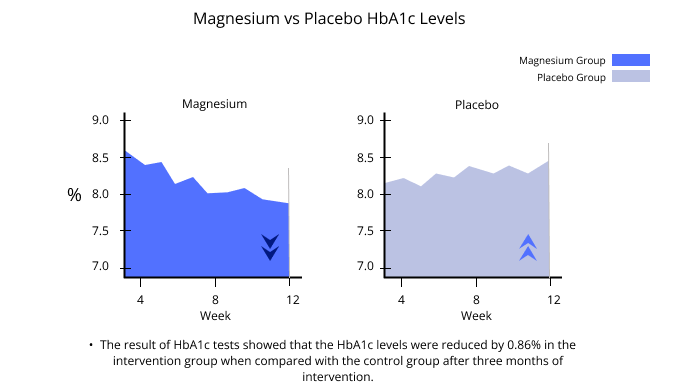
The test results for insulin levels, C-peptide, HOMA.IR and HOMA.β% tests showed that magnesium supplementation improved insulin sensitivity and improved glycemic control indicators among type 2 diabetes patients.
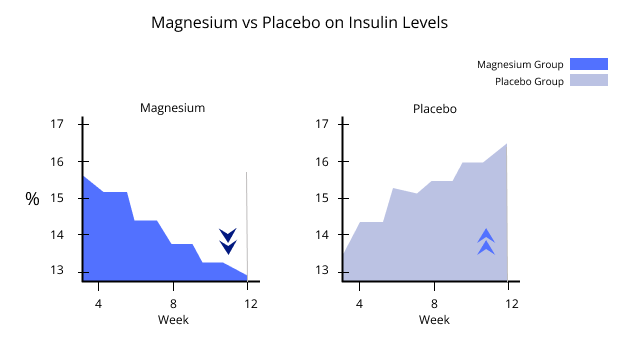
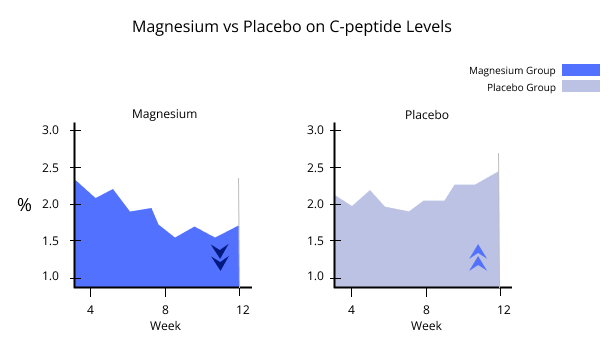
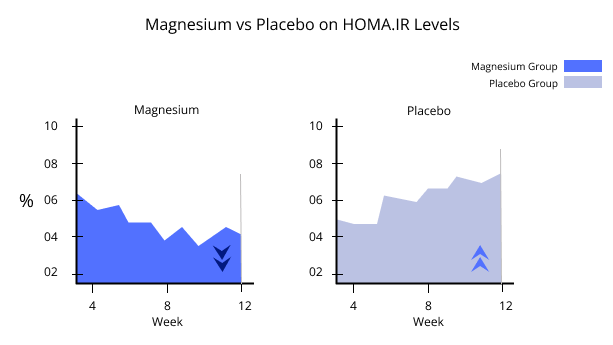
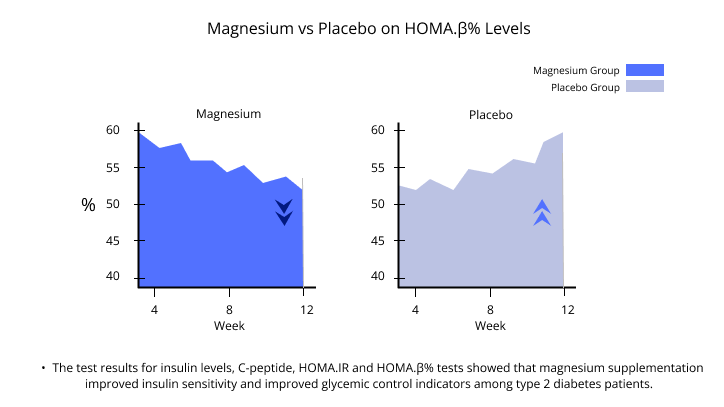
The Conclusion
This study showed that oral magnesium supplementation might reduce insulin resistance and improve glycemic control in type 2 diabetes patients as long as the patient continues a healthy diet plan.
Reference
The Effects of Oral Magnesium Supplementation on Glycemic Response among Type 2 Diabetes Patients
Related Posts



Quick Links
Legal Stuff



